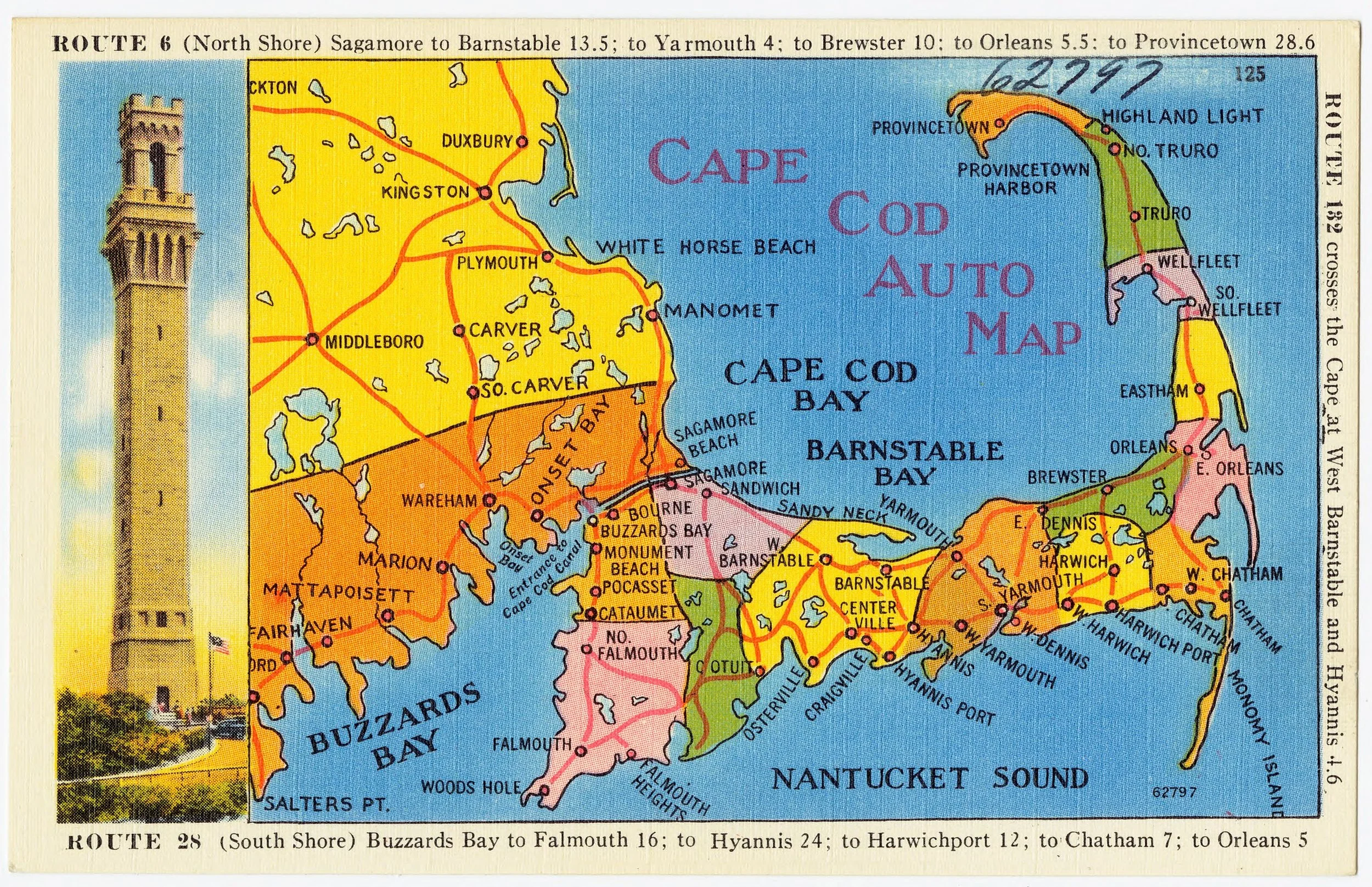
Small-town energy
Consider Hatch House (built in 1748 but obviously much changed since then), in Falmouth, Mass.
Cape Cod Auto Map, 1930s–40s postcard by Tichnor Bros. of Boston.
Adapted from Robert Whitcomb’s “Digital Diary,’’ in GoLocal24.com
I made a recent road trip was to Falmouth, Mass., on the Cape, where I did a little more historical research, mostly about the 19th Century in that town, where many of my ancestors lived. I was struck again by the energy of town leaders, then, in business and civic life. They’d start up a wide range of businesses, from salt collection, to guano processing (for fertilizers), to boat building, to raising sheep for wool, a major sector in New England at the time as textile mills popped up. When one business didn’t pan out they’d go on to the next at a good clip. They were remarkably handy at fixing things, both business plans and equipment. And they did this at a time when transportation was much more difficult than it is now.
Consider that members of the local Butler family who owned the town’s monopolistic town general store, found it easier to ship by boat from New York City some stuff to provision the store than to get it from the much closer Boston area, which often required, before the trains came in, transporting stuff via the sometimes perilous route around Cape Cod in pre-canal days.
While being energetic small-town capitalists, many Falmouth folks were notably civic-minded, of course sometimes out of enlightened self-interest. There seemed to be no dearth of men (in those pre-women’s suffrage days) willing to run for selectman, state representative or other political posts and to promote the construction of schools and other public facilities, as well as churches. And they’d get into heated issues such as by signing petitions to abolish slavery and holding public meetings on that and other matters.
Still, mixed with all this energy, as I can tell from their letters, were fatalism and melancholy, which they seem to have passed on to their descendants.
It was a very different world, of course, but there are some lessons to be learned about building successful communities from Falmouth.
I was struck by how busy downtown Falmouth seemed last week, even though the prime summer people and tourist season ended weeks ago. Half a century ago, it would have been much quieter at this time of year. Maybe that autumns are getting warmer has something to do with it.
And, oh dear!
The Trump regime, whose greatest enthusiasm seems to be to stick it to its real or perceived adversaries, has paused $11 billion in funding for infrastructure projects in some Democratic Party-led cities, including Boston, and put into some doubt the $600 million that the Feds had pledged to help pay to replace the two decaying highway bridges over the Cape Cod Canal, which were built the ‘30’s.
Meanwhile, $172 million in taxpayer money will go to buy two Gulfstream jets for the use of Homeland Security Secretary Kristi Noem and her top assistants.
Ms. Noem, as does her boss, loves to flaunt luxury. Some may recall her $50,000 gold Rolex wristwatch; the origin of the money to buy it remains something of a mystery.
Anyway, the public be damned! Some $300 million is being spent to illegally demolish the East Wing of the White House and rebuild it for a huge ballroom where the Orange Oligarch can hold court. But don’t worry, the money is coming from private donors. You can bet that most of them seek special access to the king.

